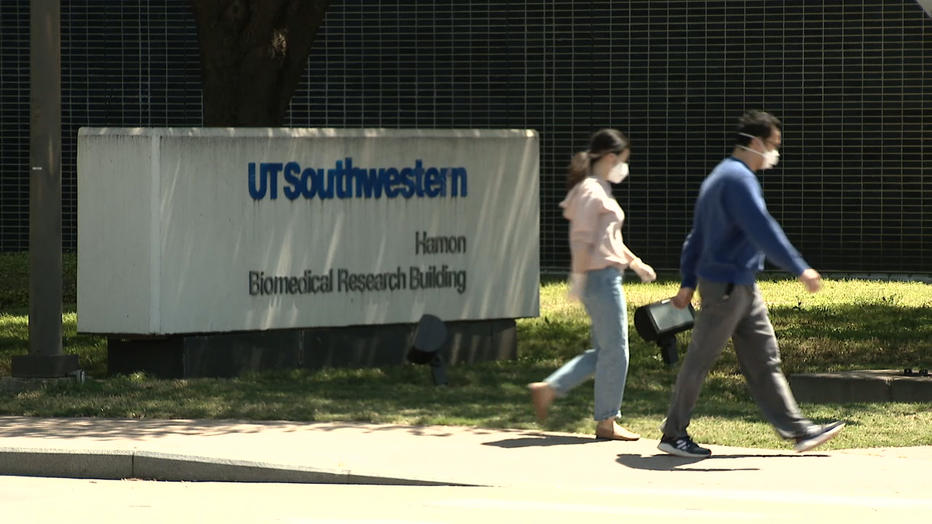President of UT Southwestern Medical Center details changes, challenges COVID-19 has brought to healthcare
DALLAS - The COVID-19 pandemic has brought changes and challenges to healthcare that no one could have ever imagined.
That’s according to UT Southwestern Medical Center in Dallas President Dr. Daniel Podolsky, who’s been the president there since 2008.
He said the novel coronavirus has pushed change in the delivery of healthcare.
Across healthcare systems, Dr. Podolsky said we should gauge preparedness to respond to what he calls a “black swan event like the COVID-19 pandemic."
RELATED: Coronavirus coverage

[REPORTER: “When you saw this virus moving like a tsunami, if you will, did you have any idea it would have this type of impact?”]
“It would have taken somebody with a pretty vivid imagination to anticipate what the tsunami, to use your term, would look like when it, when it hit the shores,” Dr. Podolsky responded.
A COVID-19 tsunami that he said has challenged all of healthcare.
“There's of course the challenge of treating patients suffering from COVID -19 in the context of there not being available specific therapies for it,” he explained. “And you know, the challenges of caring for those who in some instances are severely ill.
As for non-COVID-19 patients, only urgent, acute cases are getting attention.
“Our concern also rests with the patients for whom we had to. Out of concern for their safety and for reasons of preserving capacity to care for patients with COVID-19, we deferred procedures
Traditional healthcare is not all that's been disrupted.
Research at the academic medical center has shifted to studying the virus, searching for effective treatments, and strategies for a vaccine.
“Which ultimately will be a way the world can see beyond a pandemic of COVID-19,” Dr. Podolsky said.
That pushed what Podolsky believes is a positive change to healthcare delivery: Telemedicine
“Out of necessity, we have now increased that by 100-fold, and at some of our clinics, as many as 90 percent of our visits are being done on a tele-health basis. And we're hearing from our patients that they actually find it a great experience,” he said.
Podolsky said he’s certain the biggest challenge going forward is not what’s happening inside healthcare facilities, but what's happening in our communities.
“And whether we're going to collectively change our behavior to intervene in the course of this pandemic until we get those more effective medications and until we have the vaccine,” he added.
Social distancing, good hygiene practices, masks on when people are outside, and stay home, stay safe will determine how the next few weeks and months got, and to some extent, even beyond that.
Dr. Podolsky is also praising the army of healthcare workers on the frontline against COVID-19.

